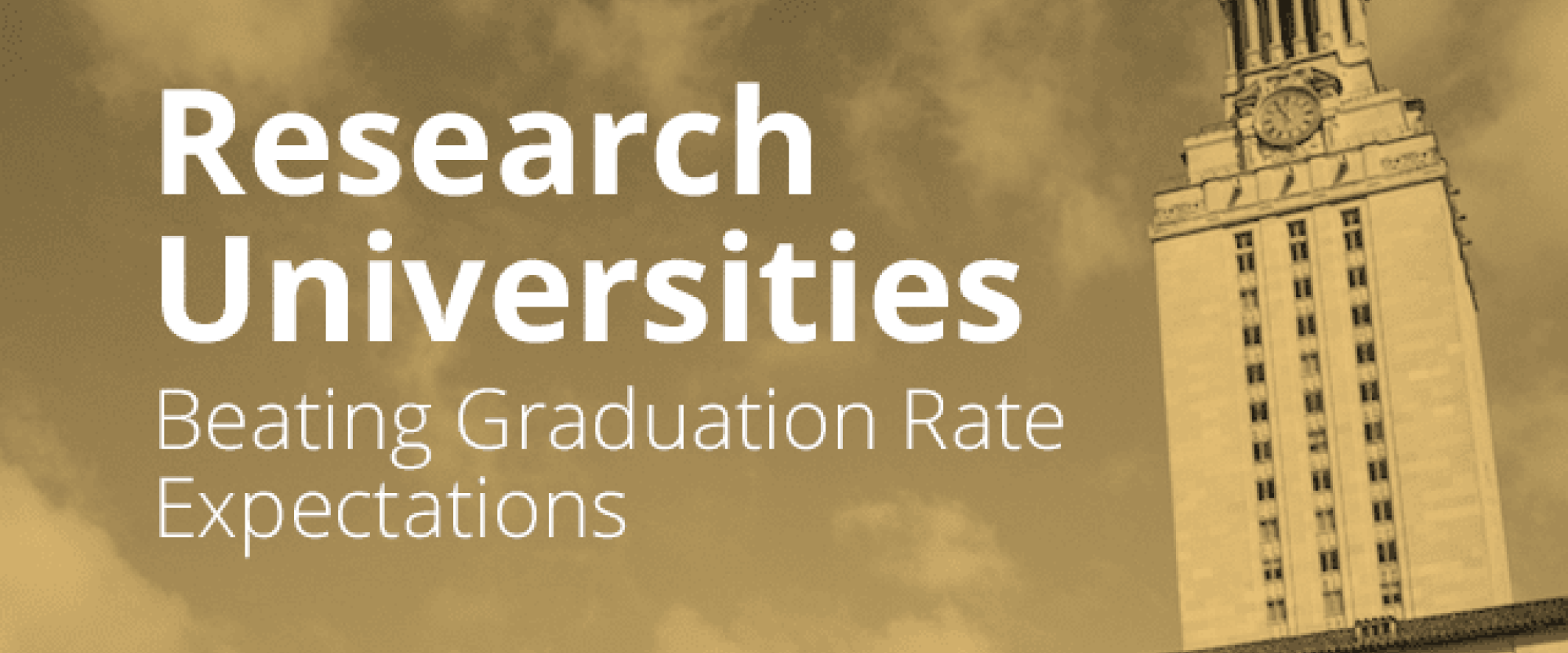PORTLAND, Ore. – March 3, 2016 – The University Innovation Alliance (UIA) today announced an additional $3.85 million in new funding from the Bill & Melinda Gates Foundation, Ford Foundation, and USA Funds to support its work to improve college completion rates.
“This additional support highlights the philanthropic community’s enthusiasm for effective collaboration among colleges and universities to share and scale student success innovation,” said UIA Vice Chair and Georgia State University President Mark Becker.
Founded in 2014, the UIA is a collaboration of 11 top-tier research institutions committed to four objectives: producing more graduates, graduating more students across the socioeconomic spectrum, sharing data, and innovating together. Thanks in part to the increased focus on these issues at UIA campuses, member institutions are already experiencing improvements in student outcomes.
Although estimates suggest the nation will face a shortage of five million college graduates by 2020, college enrollment numbers are declining. In 2014, the group set a public goal at the White House Opportunity Summit to graduate an additional 68,000 students over the next decade. According to an updated forecast, UIA members are now on track to graduate nearly 100,000 additional students during that time.
Since its inception, UIA members have also increased the proportion of degrees awarded to low-income students by three percentage points, while decreasing the gap in graduation rates between low-income students and their more affluent peers. The Ohio State University, University of Central Florida, Arizona State University, Iowa State University, Oregon State University and Purdue University have each increased the number of low-income graduates by more than 19 percent.
“This growth reflects the commitment of our campus leaders to graduate more students across the socioeconomic spectrum, setting a powerful example for others,” said Bridget Burns, UIA executive director. “When the power of predictive analytics and other best practices are implemented broadly across Alliance campuses, we expect the gains to be even greater. If all other four-year public colleges and universities in the U.S. increased their graduation rates at the UIA’s pace over the next decade, we would add 1.3 million college graduates to the workforce.” The group is also advancing new research in the broader higher education community. This past fall, Georgia State led the UIA to win an $8.9 million U.S. Department of Education First in the World grant to start a 10,000-student random control trial to evaluate the impact of data-driven strategies that support first-generation college students.
“Collaboration through the Alliance represents a force multiplier in our efforts to increase completion rates,” said UIA Chair and Arizona State University President Michael Crow. “Big data enable us to understand what works and apply the experience of our peers so that we don’t have to experiment alone.”
The success of the Alliance is rooted in its collaborative approach to accelerate student success and innovation among campuses that might typically compete in other areas. Last year, Alliance members focused on replicating predictive analytics initiatives that use big data to identify and support at-risk students.
The UIA has already fostered successful innovations among campuses. Programs replicated through the work of the Alliance include:
- University of California, Riverside redesigned its summer bridge program, based on lessons learned from the University of Texas at Austin bridge program;
- University of Central Florida replicated Georgia State’s Panther Retention Grant, which provides funds to students who are close to graduating, but might be otherwise deterred by outstanding fees;
- Michigan State University is revamping its communication strategies to improve student success borrowed from Georgia State.
"We know that inequality on and off campus is a major barrier to giving students a high quality education and getting them across the finish line. The UIA is at the leading edge of implementing solutions to promote equity in higher education and improve future opportunities for untold young people across the country," said Hilary Pennington, vice president of education, creativty and free expression at the Ford Foundation. "It it tremendous to have a group of universities innovating together to solve a common problem, thinking smartly on ways to share and spread practices, and benchmarking against each other to increase our collective learning."
With the latest investment, the UIA has been awarded $18.45 million in total funds, including support from the Bill & Melinda Gates Foundation, Ford Foundation, the Kresge Foundation, Lumina Foundation, the Markle Foundation, USA Funds, and the U.S. Department of Education.
“If our nation is to continue to prosper, men and women of all income levels and colors need enhanced levels of education. USA Funds congratulates the 11 Alliance members for choosing to collaborate and innovate to promote better outcomes for all students," said Lorenzo L. Esters, Senior Program Director at USA Funds. "The progress achieved by the Alliance members serves as a model for all of higher education about the significant impact institutions can have when innovation is embraced by all constituents at the institutional level.”
The 11 members of the Alliance include:
- Arizona State University
- Georgia State University
- Iowa State University
- Michigan State University
- Oregon State University
- Purdue University
- The Ohio State University
- University of California, Riverside
- University of Central Florida
- University of Kansas
- University of Texas at Austin
About the University Innovation Alliance:
The University Innovation Alliance is a national consortium of eleven large public research universities spanning the geographic, economic and social diversity of our country. Together, we are working to regain America’s economic competitive edge by helping more students graduate with a high-quality and affordable education. We do this by broadening participation in higher education and implementing proven programs that significantly improve graduation rates for all students regardless of socioeconomic background. For more information, visit www.theUIA.org.
Media Contact: Sarah Herring, 202-479-7149 sarah@whiteboardadvisors.com

